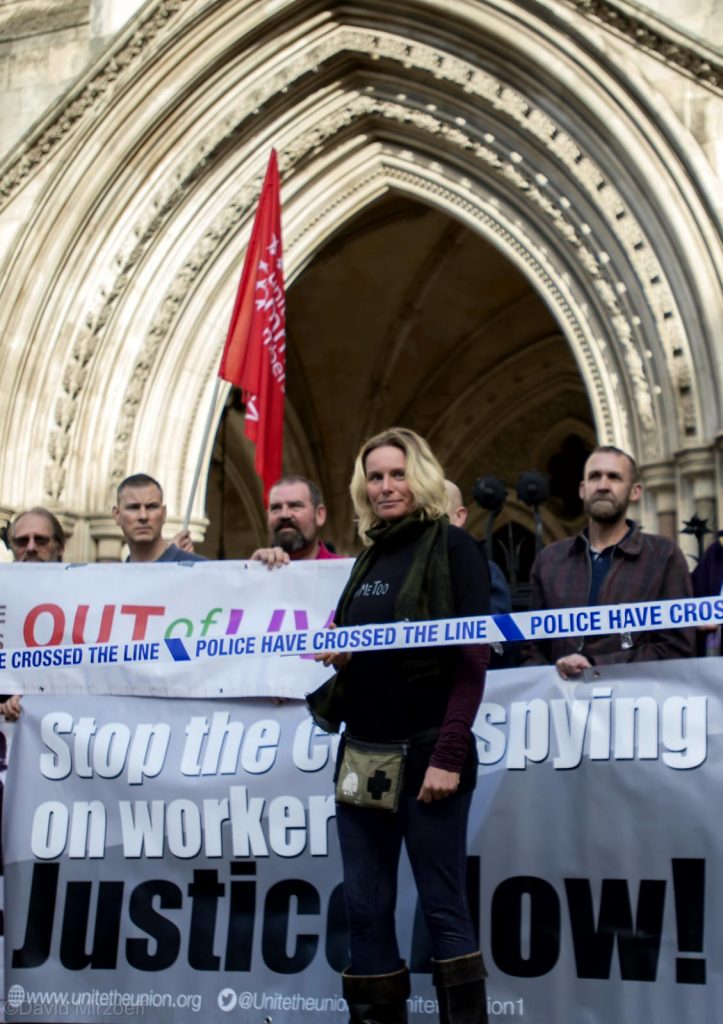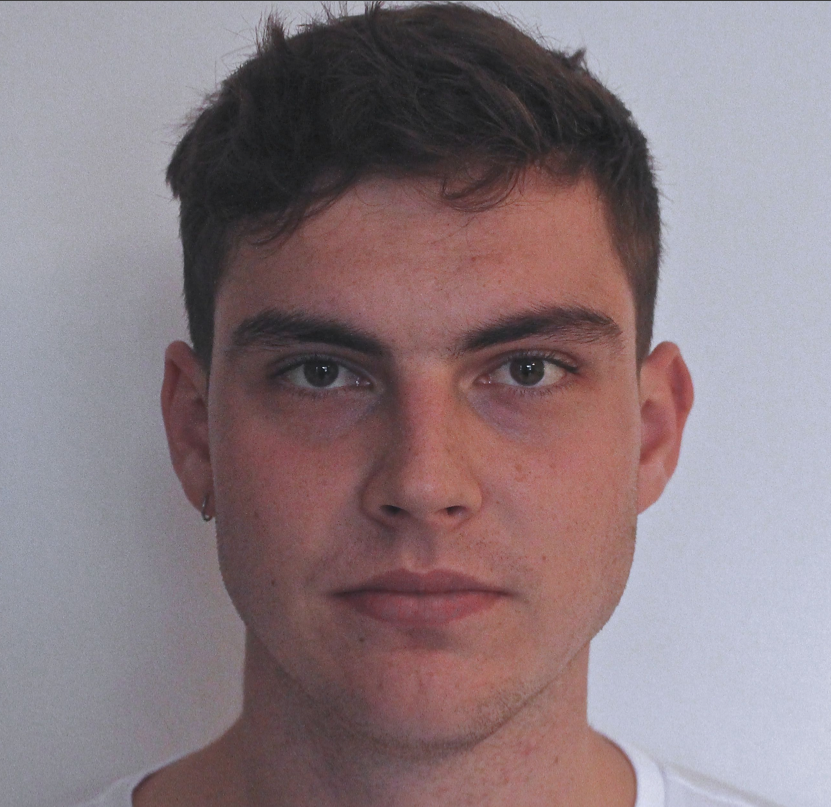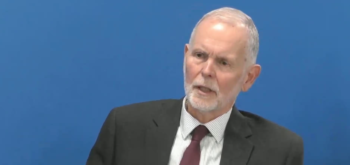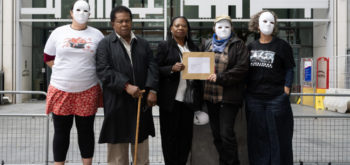It has taken ten years for Kate Wilson, the environmental campaigner deceived into a relationship with the undercover police officer Mark Kennedy, to have her day in court. This week, a specialist tribunal has been hearing how police bosses allowed and even encouraged officers into sexual relationships with activists that they were sent to spy on. KateWilson talks to Jon Robins in this week’s Justice Gap podcast produced by Calum McCrae. Pic: Police Spies Our of Lives.
‘It is difficult to describe the impact of that kind of betrayal,’ Kate Wilson tells the Justice Gap. ‘Somebody I was that close to, who was such a good friend as well as a lover, to find out that that person wasn’t even real.’
The Investigatory Powers Tribunal, set up to investigate complaints relating to state surveillance and sitting at the Royal Courts of Justice, heard Wilson’s lawyers argue that Kennedy had been sent to infiltrate the Sumac Centre in Nottingham in 2003 under the alias ‘Mark Stone’ because the Met’s National Public Order Intelligence Unit believed it was being used by people ‘involved in extremism relating to animal rights, environmentalism, anarchy, anti-weapons and war issues and anti-globalisation’ (as reported by the BBC here). ‘In truth, it was a community space with a vegan cafe used by a wide range of people and groups,’ Charlotte Kilroy QC told the court. The barrister said that Kennedy used Wilson to ‘bolster his own credentials as an activist’ enabling him to ‘infiltrate new protest groups, gather intelligence and maintain’.
Kate Wilson tells the Justice Gap: ‘I personally knew at least six different undercover police officers over a period of 12 years. There is a personal betrayal but you realise it isn’t just personal it’s also political.’
Their relationship last for over a year and it was only in 2010 that she discovered his real identity and that ‘Mark Stone’ was, in fact, ‘PC Mark Kennedy’ and that he had spent seven years undercover infiltrating countless protest movements (here).
Kate Wilson talks of ‘the uncertainty and paranoia’ that resulted from Kennedy’s deception which she says impacted not only on her ability to form relationships ‘but also to engage politically’. ‘I have been forced to engage by the fact of the legal process. The police depleted our funding and I had to represent myself,’ she says. Wilson and her supporters had to launch a crowdfunding campaign to cover legal costs. ‘I’ve had to be publicly active but at the same time I am completely terrified of taking part in any kind of political campaigning,’ she says. ‘That is what the police and the government’s approach to policing protest has achieved.’
The campaigner is highly critical of the undercover policing inquiring and, in particular, its chair Sir John Mitting. ‘Mitting is just shocking,’ she says. ‘My view is that he’s not fit for purpose to chair a public inquiry. This inquiry is looking into institutional sexism and institutional racism in the Metropolitan police and he has demonstrated he himself holds terrifyingly outdated and sexist views and a worrying tendency to disregard non-state core participants and to pander to the police’s excessive requests for secrecy.’
Wilson continues: ‘The police are asking for anonymity for officers to protect their right to privacy, not for any kind of national security reasons. They have admitted in my case that, not just Mark Kennedy but six undercover police officers over a period of five years breached my rights to privacy and family life. The rights of people whoseprivacy was violated are not being respected by this inquiry in the same way as the rights of individual officers. The police are being pandered to by the inquiry.’







